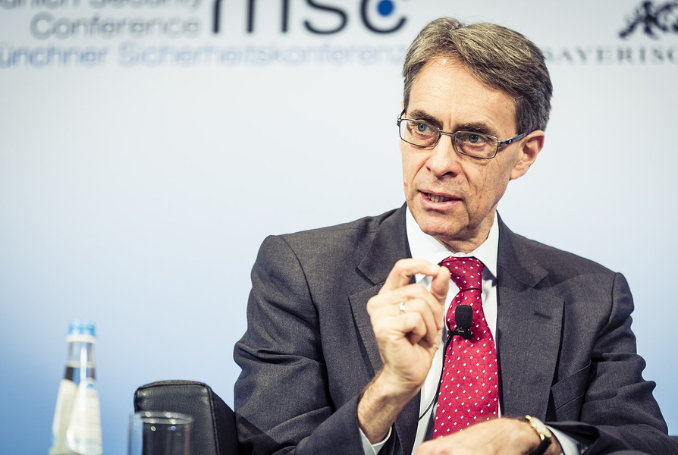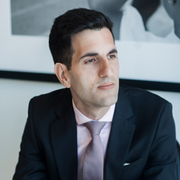
If you’ve been closely following coverage of how Israeli ideologues censor pro-Palestinian voices you’ve likely heard by now of former Human Rights Watch executive director, Kenneth Roth.
In recent weeks he’s received considerable media attention for unfairly being axed from his fellowship post at Harvard’s Kennedy School (specifically the school’s Carr Center for Human Rights Policy), on account of him—as any person of conscience would—taking issue with Israel’s mistreatment of the Palestinian people.
In a recent piece for The Guardian where he discusses his termination, Roth sheds light on this:
“The Carr Center called me up to say sheepishly that [Douglas] Elmendorf [dean of the Kennedy School] had vetoed my fellowship. He told Professor Kathryn Sikkink [confirmed by Sikkink herself], a highly respected human rights scholar affiliated with the Kennedy School, that the reason was my, and Human Rights Watch’s, criticism of Israel.”
In a sense, this is nothing new. Israeli ideologues have for long constantly been making efforts, and unfortunately often with success, to shut down Palestinian voices in schools, government and mainstream media. This is part of the larger business, as it were, they are involved in: the suppression of the truth (past and present) of both Palestine and Israeli alike.
So long as they are able to achieve and maintain such suppression, the public is less likely to find out about what Israel, for decades at least, has been doing to Palestine—not for the purposes of “security” but to ethnically cleanse the nation entirely. Among a list of Israeli crimes against humanity, this involves Israel’s routine bombing of Gaza, the demolition of Palestinian homes and properties in the West Bank, arbitrary arrests of Palestinian children and then depriving them any access to justice (e.g. fair legal representation).
New at least to me, however, is what dawned on me in studying the media coverage of Roth. When Palestinian voices are silenced on account of Israeli interference, relatively little is said in that coverage about Palestine itself. I noticed this for example in pieces, albeit well-written, such as those published by The Crimson, The Washington Post and two produced by The Guardian (last January 6 and January 8). Most of what they address is Israeli interference—financially and otherwise—to shut down Palestinian voices.
The question remains, however: what does such interference mean for Palestine itself, as well as more broadly the international struggle for Palestinian justice?
It’s important that all media, whether mainstream or alternative, weigh more the question and go to some lengths to answer it. At this point it’s surely obvious that Israeli interference, whether successful or not, aims to routinely silence Palestinian voices. Likewise, and related to this, it’s no mystery that this unfairly compromises freedom of speech and, when we are talking about universities more specifically, academic inquiry.
As American philosopher and political thinker, Walter Lippmann, observes in his essay “The University”:
“In the field of truth and error about the nature of things, and of the history and future of the universe and of man, the state and its officials have no jurisdiction. When the scholar finds that two and two make four, no policeman, no judge, no governor, no legislator, no trustee, no rich alumnus, has any right to ordain that two and two make five.”
In this way, we might think of the university as sacrosanct. It is a place where, following Lippmann’s line of thinking, there are mechanisms in place to guarantee that no party—individual or collective—be allowed to prevent scholarly inquiry into Palestine. Where the opposite occurs not only is the production of important knowledge concerning Palestine, including how it continues to be oppressed by Israel, unnecessarily limited.
Further knowledge that would otherwise be produced in the absence of such a limitation cannot be used for pro-social ends, such as holding Israel accountable and ensuring justice for Palestine (in accordance with international law).
Donors who support the continued oppression of Palestine by Israel and don’t want their money, at universities or elsewhere, to go towards the kinds of knowledge described are free to withhold that money. In a moral and democratic society, they should not be free, however, to pressure universities to accept that money to prevent that knowledge from being produced altogether. That’s harassment. Universities should not have to put up with harassment from Israeli or other ideologues whose main aim is to censor.
Yet the world over are donors adamant about funding universities, to generate work (articles, books, conference proceedings, etc.) that at once purposely avoids exposing Israeli criminality while misrepresenting Palestine as “dangerous”, a “terrorist” threat that needs to be contained or neutralized to ensure the safety and order of the “free world.” Any university that’s worth its salt must entirely prohibit such donors from getting their way.
This does not reflect what happened in Roth’s case. Instead, Harvard apparently took the side of donors antagonistic towards Palestine. Whether the donors themselves are members of the Israeli state or not is unclear. However, in so far as they desire to prohibit the truth of Palestine and Israel alike from emerging, their interests directly align with the state. Hence in axing Roth and taking the side of the donor Harvard effectively satisfied Israeli state interests before academic freedom or, more concretely, all the important work Roth would have undertaken in his post at the Kenneth School to advance the international struggle for Palestinian justice.
Morally this is disgraceful. What’s more, it’s a betrayal, by Harvard, of the sacrosanct quality of the university. And in so far as the quality is at the very core of what universities are supposed to be, it is entirely doubtful at present whether Harvard, notwithstanding all its merits, deserves to be called a “university.” By its own actions, its shown itself to more closely resemble a proxy for Israeli ideologues, be they donors, the Israeli state, public relations firms, American Israel Public Affairs Committee (AIPAC)—any actor that endorses the continuation of Israeli criminality at the expense of innocent Palestinians, while its perpetrators enjoy impunity.
If we’re to preserve the scholarly and intellectual integrity of universities we must find a solution to this. Chomsky’s observation, in his trenchant essay “The Function of the University in a Time of Crisis”, is here instructive:
“The Pentagon and the great corporations can formulate their needs and subsidize the kind of work that will answer to them. The peasants of Guatemala or the unemployed in Harlem are in no position to do so, obviously. A free society should encourage the development of a university that escapes the not-too-subtle compulsion to be “relevant” in this sense. The university will be able to make its contribution to a free society only to the extent that it overcomes the temptation to conform unthinkingly to the prevailing ideology and to the existing patterns of power and privilege.”
By analogy universities must ensure that, say, on account of receiving handsome funds from Israeli ideologues that defending Israel’s reputation, including producing work that’s favorable to its image, never (without exception) becomes more, to use Chomsky’s word, “relevant” than honest work on Palestine. This does not mean we exclude Israel from such work. It’s very much the opposite: we include but address it, similar to the many internationally recognized human rights bodies (the United Nations, Human Rights Watch, Amnesty International, etc.), in terms of how Israel is actually behaving. Contrary to what Israeli ideologues often believe and express, this has nothing to do with animus towards Israel on account of primarily unfounded and even odd reasons they cite as underlying it, such as “antisemitism” or “woke” virtue-signaling that makes Israeli critics appear favorable to their “social justice warriors” peers.
It’s rather for the simple reason that none, individual or state, is above the law. And when you commit crimes you must be held accountable. This should never mean cruel or disproportionate punishment. That’s what vigilantes do, not at all unlike Harvard for wrongly terminating Roth for criticizing Israel.
It’s also, more generally, a reactionary and anti-intellectual way of addressing the critic. The proper way, especially in a university, to address them is democratic—say why you believe their position is wrong, perhaps even offensive, and then provide reasons and arguments as to why. Not coincidentally it’s a sign of maturity which Israeli ideologues, always wanting to get their way, seem woefully lacking.
When you are intent on simply eliminating critics (your own or others), you reveal yourself as someone adverse to dialogue and, by extension, important knowledge that emerges from that. If this manifests itself as kicking the critic out from your ranks for caring about Palestine, as Harvard did with respect Roth, you go a step further. You show you don’t care about humanity.
Instead, you maintain the false and noxious view that some are “superior” or “matter” more than others, not worthy of any serious attention. In axing, Roth Harvard made clear, publicly, that for them this translates to Israelis being more important than Palestinians.
Universities are sites that must always privilege truth, along with the free inquiry through which it is discovered. Where this is lacking universities veer away from enlightenment and in time they enter darkness.
Whether you wish to call it “ivy league” or not, that’s where Harvard is heading. And til it sees rightful criticism of Israel as a good thing, without disciplining those who engage in it, we cannot expect it to change course.
Genuine learning and education is never about appeasing donors. It’s about illuminating truth—honoring light over darkness.

– Paul Salvatori is a Toronto-based journalist, community worker and artist. Much of his work on Palestine involves public education, such as through his recently created interview series, “Palestine in Perspective” (The Dark Room Podcast), where he speaks with writers, scholars and activists. He contributed this article to The Palestine Chronicle.








